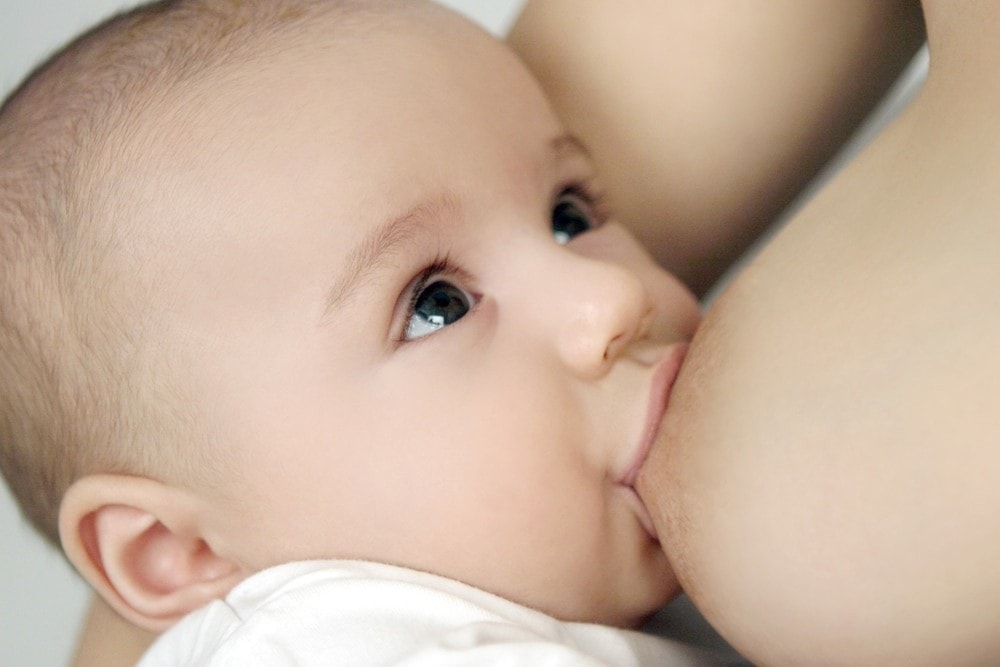Breastfeeding During Pregnancy: Safety and Challenges
You may have just started adjusting to breastfeeding only to find out you are pregnant again. This might lead to a rush of questions and concerns. Is it safe to breastfeed while pregnant? How will this affect the fetus? How will this affect my weaning child? Can I breastfeed two children at once?
All of these questions and feelings are understandable. While the decision of whether or not to breastfeed while pregnant is not always clear, an understanding of its benefits, its risks, and how ready you and your nursing child are to wean will help you determine what is best for everyone involved.
Can You Breastfeed While Pregnant?
Many women worry about breastfeeding while pregnant as breastfeeding can cause mild uterine contractions. However, in a healthy pregnancy, these contractions are not a concern, as they generally do not cause preterm labor. This is because oxytocin, the hormone released during breastfeeding that stimulates contractions, is usually released in such a small amount during breastfeeding that is not enough to cause preterm labor. Such contractions are also harmless to the fetus and rarely increase the chances of having a miscarriage. Also, although a small number of pregnancy hormones pass into your milk, these hormones pose no risk to your child.
While breastfeeding during pregnancy is generally considered safe, there are some cases where weaning may be advisable:
- If you have a high-risk pregnancy or are at risk for preterm labor
- If you are carrying twins
- If you have been advised to avoid sex while pregnant
- If you are having bleeding or uterine pain
If you experience these symptoms, talk with your doctor to determine whether weaning would be the best option for you, your nursling, and your unborn child.
Is My Child Ready? Am I Ready?
Another important aspect to consider is whether your older child is ready to wean. Factors affecting this include your child’s personality, age, and nursing patterns, as well as your child’s psychological and physical response to your pregnancy.
It is common for a mother’s milk supply to lessen during the fourth and fifth months of pregnancy. This can cause changes to the milk and may make your milk distasteful to your child. For this reason, your infant may be ready to wean earlier than you anticipated. On the other hand, your infant may be attached to breastfeeding and not ready to wean.
Similarly, you may question whether you yourself are ready for your child to wean. You may also wonder how your pregnancy may affect your relationship with your nursing child. Another important consideration is whether your child is breastfeeding mainly for nutrition or for comfort.
It is crucial to monitor the health and development of infants who are less than six months old and are dependent exclusively on breast milk. Additional feedings may be necessary to ensure your infant is properly nourished. Babies who are already eating other foods, on the other hand, may grow to prefer other foods over breast milk as your milk supply decreases.
Potential Challenges
While breastfeeding during pregnancy has its benefits, it may also present some challenges. For instance, some physical challenges may include nausea due to the let-down of milk as well as sore nipples. Nearly 75% of mothers experience sore nipples. Focusing your attention towards something other than the discomfort may provide some alleviation.
Many women also have concerns that breastfeeding while pregnant may contribute to fatigue. Yes, fatigue is a normal part of all pregnancies. Thus, it is certainly understandable that you may be hesitant to breastfeed due to fear that it may require more energy and add to your fatigue. However, breastfeeding is not tiring in and of itself. Sitting or lying down to breastfeed may actually help ensure you get the extra rest you need.
Eating Well
If you decide to breastfeed while pregnant, it is essential that you eat well for the health of your nursing child and your unborn child. Your calorie intake will depend on how old your nursling is. You will need around 500 supplemental calories per day if your child is eating other foods besides breast milk or 650 more calories if he is less than six months old.
This is in addition to the 350 extra calories you need during the second trimester and the 450 extra calories you need during the third trimester. If you are in your first trimester and find it difficult to eat due to nausea, you will be relieved that no additional calories are required during the first trimester.
Ultimately, when breastfeeding and pregnancy coincide, the primary considerations you have to look at, our relationships and feelings. You will want to consider the needs of your unborn child and your nursing child in addition to your own feelings. While you may want to leave your options open depending on the situation and the needs of you and your children, the decision is essentially up to you.
Want to Know More?
Compiled using information from the following sources:
1. Feldman, S. (2000). Nursing through pregnancy. New Beginnings, 17 (4). Retrieved from
2. Harms, R. W. (2012). Is it safe to continue breastfeeding if I’m pregnant with another child?.
3. Walters, S. (2008). Breastfeeding during pregnancy.






